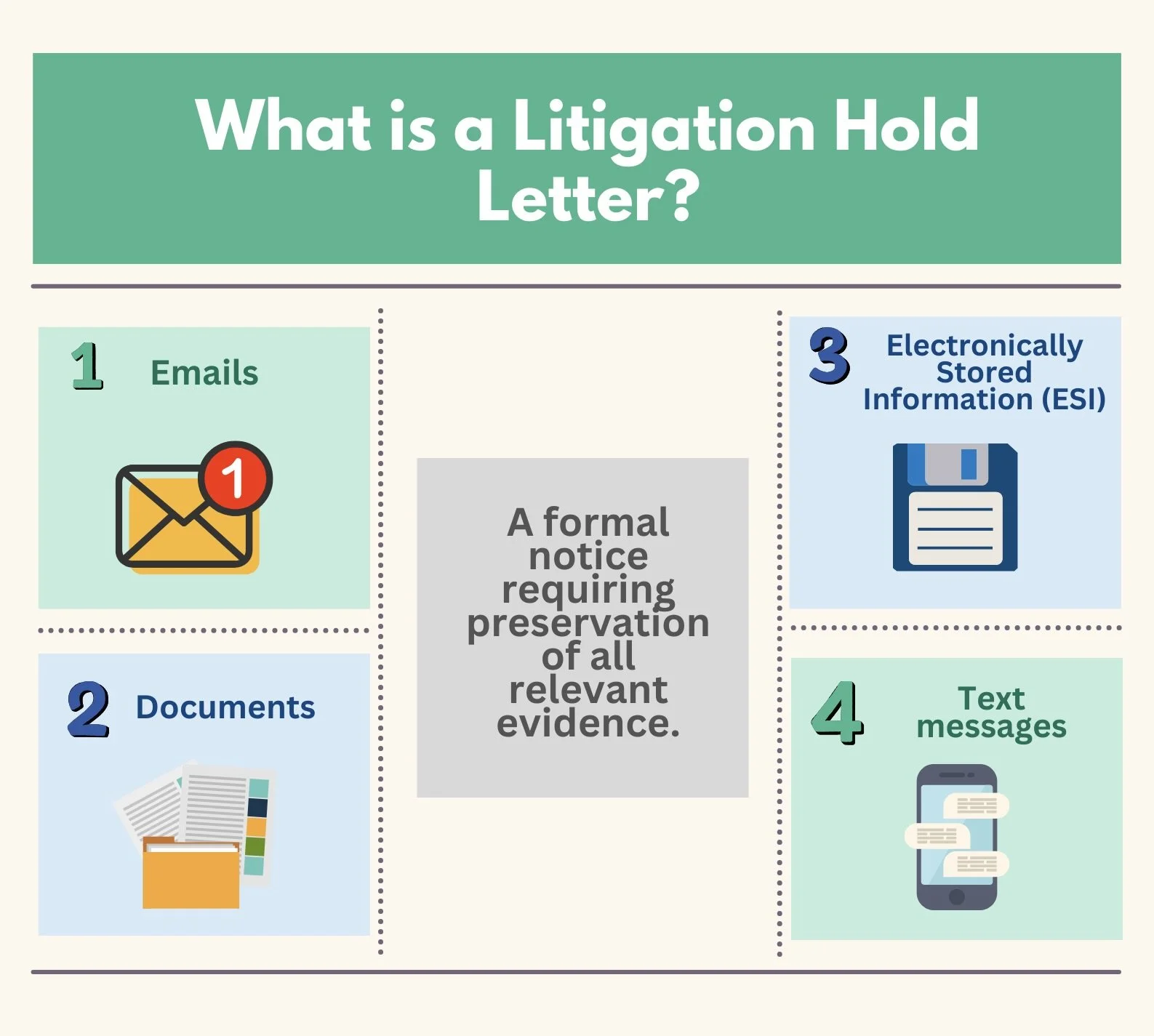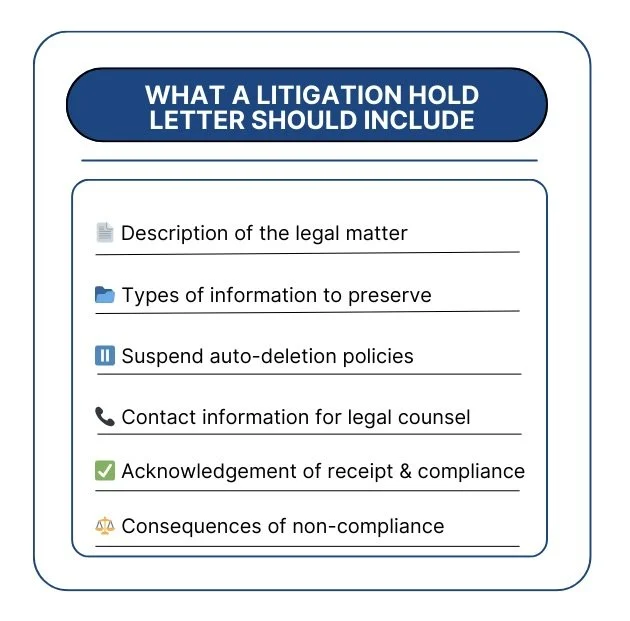Litigation Hold Letters: What They Are and Why You Must Take Them Seriously
When a lawsuit is pending, or you believe that one will be filed shortly, your company has certain legal obligations. One of these obligations is the duty to preserve relevant evidence. Employees are often notified of this requirement with a litigation hold letter.
What Is a Litigation Hold Letter?
A Litigation Hold Letter (also known as a "legal hold" or "document preservation notice") is a formal notice sent, often by a company’s legal department or outside counsel, to employees or parties who may possess information relevant to a legal matter. The letter instructs recipients to preserve all potentially relevant records, including emails, documents, texts, and other forms of electronically stored information (ESI).
These letters serve a simple but essential purpose: to prevent the destruction or alteration of evidence that may be important to pending or reasonably anticipated litigation.
When Are Litigation Hold Letters Sent?
A litigation hold should be issued as soon as litigation is reasonably anticipated, not just when a lawsuit is filed. Courts have made clear that the obligation to preserve evidence begins when a party knows or should know that a claim is likely.
The following events can trigger the obligation to send a litigation hold letter:
Receipt of a demand letter
Notice of an internal or external investigation
Filing of a complaint or administrative charge
Serious customer or employee disputes
Government subpoenas or inquiries
Who Should Receive a Litigation Hold?
Recipients of a litigation hold letter should include anyone who might have relevant information—commonly referred to as "key custodians." This could include:
Employees involved in the matter
IT personnel (who may manage data storage or backups)
HR or compliance officers
Outside vendors or consultants
Identifying the right custodians early is crucial to ensure the integrity of the process.
What Should a Litigation Hold Letter Include?
A well-crafted litigation hold letter should be clear, specific, and easy to follow. Key components typically include:
A description of the matter at issue
The types of documents and information to be preserved
Instructions on suspending automatic deletion protocols
Contact information for legal counsel in case of questions
A requirement to acknowledge receipt and compliance
It may also explain the consequences of non-compliance, including potential legal sanctions.
Why Are Litigation Holds So Important?
Courts take evidence preservation very seriously. Failure to properly issue or comply with a litigation hold can result in legal consequences such as:
Monetary sanctions
Adverse inference jury instructions (the court tells the jury it may presume the lost evidence was unfavorable)
Dismissal of claims or defenses
Criminal penalties in extreme cases
In short: ignoring a litigation hold can harm your case before discovery officially begins.
Best Practices for Compliance
For organizations, having a litigation hold policy is essential. Consider these best practices:
Educate employees about their legal obligations
Use legal hold software to manage and track compliance
Involve IT early to ensure all relevant systems are covered
Periodically remind custodians of their duties
Document your preservation efforts to defend against any future challenges
Key take-aways
Whether you're a business owner, HR professional, or individual employee, understanding your role in the evidence preservation process is critical. If you receive a litigation hold letter, take it seriously, follow the instructions, and don’t hesitate to reach out to legal counsel if you're unsure what to do. If you think your company will soon be involved in a lawsuit (either as the plaintiff or defendant), consult legal counsel early on for assistance with drafting and issuing a litigation hold notice.


